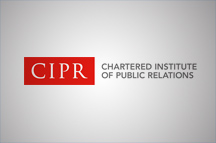Just two civil penalties have been issued following investigations into suspected unregistered lobbying under the Lobbying Act in the last five years, according to research published today by the CIPR, the industry body for UK lobbyists and public relations practitioners.
Introduced by the coalition government in 2014, the Lobbying Act launched a statutory register in which consultant lobbyists are obliged to register their correspondence with Ministers and Permanent Secretaries with the Office of the Registrar of Consultant Lobbyists (ORCL), the UK’s lobbying watchdog. Though intended to increase transparency and improve public trust, the CIPR’s report – Failure by Design - has identified six key exemptions in the Act that keep the vast majority of lobbying from public view and makes the Registrar powerless to stop lobbying scandals.
As a result of these exemptions, the CIPR’s analysis of the 53 investigations into suspected unregistered lobbying (that were publicly available at the time of writing) found that in 96% of cases there was no requirement to register the communication in question. The report also found that in the three cases where ORCL did impose a civil penalty – two for unregistered consultant lobbying and one for an inaccurate Quarterly Information Return (QIR) being submitted - the combined total ran to just £3,180.
In the investigations where no requirement to register was found, the exemptions cited were as follows:
- In 44% of investigations ORCL found no registerable communication had been made – the largest single category of results;
- In 20% of investigations, ORCL found that the VAT registration of the company in question exempted it from signing the Register;
- In 18% of investigations, ORCL found that no payment had been made to those making communications on behalf of a third party, thereby exempting them from signing the Register;
- In eight percent of investigations, ORCL found no registration was needed on account of the incidental lobbying exemption;
- In six percent of investigations, individuals lobbying were found to be in-house employees, rather than third-party consultant lobbyists, meaning they were exempt;
- In four percent of investigations, individuals lobbying took advantage of the representative organisation exemption.
The findings demonstrate the extent to which ORCL has been let down by the Lobbying Act, raising questions about whether the watchdog has the tools it needs to effectively police the lobbying of Westminster.
Commenting on the findings, Alastair McCapra, CEO of the CIPR, said: “We have a dedicated and hardworking regulator in ORCL, but one that has ultimately been asked to catch smoke with its bare hands. We were told when the Lobbying Act was introduced that it would shine a light of transparency on UK politics, but our research reveals conclusively that it actually keeps the vast majority of lobbying from public view. We’re essentially sending the regulator to the ring with both its hands tied behind its back.
Because of the limitations of the Lobbying Act, in too many cases investigations into confirmed lobbying activity, including that of David Cameron and Owen Paterson, require no obligation to register that activity in any public space. This is unacceptable at a time when public trust is plumbing to new depths. If the next Government, no matter the colour of rosette, wants to restore trust in politics it must start by reforming UK lobbying laws. The time for change is upon us and we need to equip our regulator with the tools it needs to do its job.”
The research follows the publication of the CIPR’s General Election manifesto, which calls for an overhaul of the 2014 Lobbying Act.












